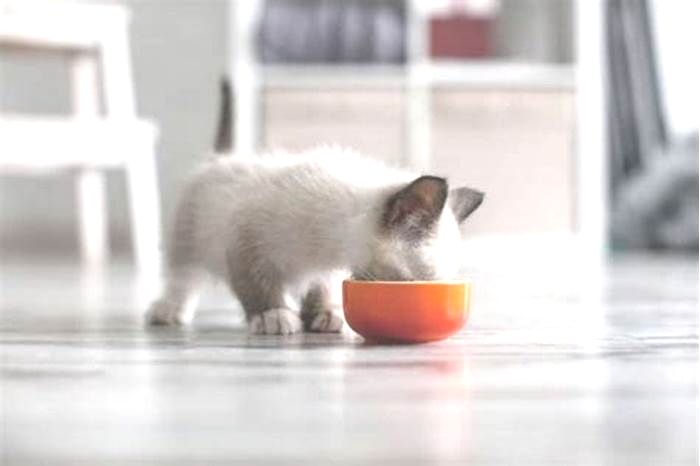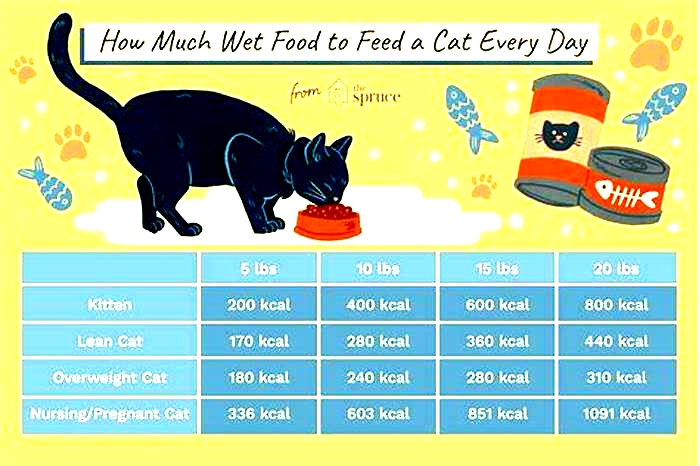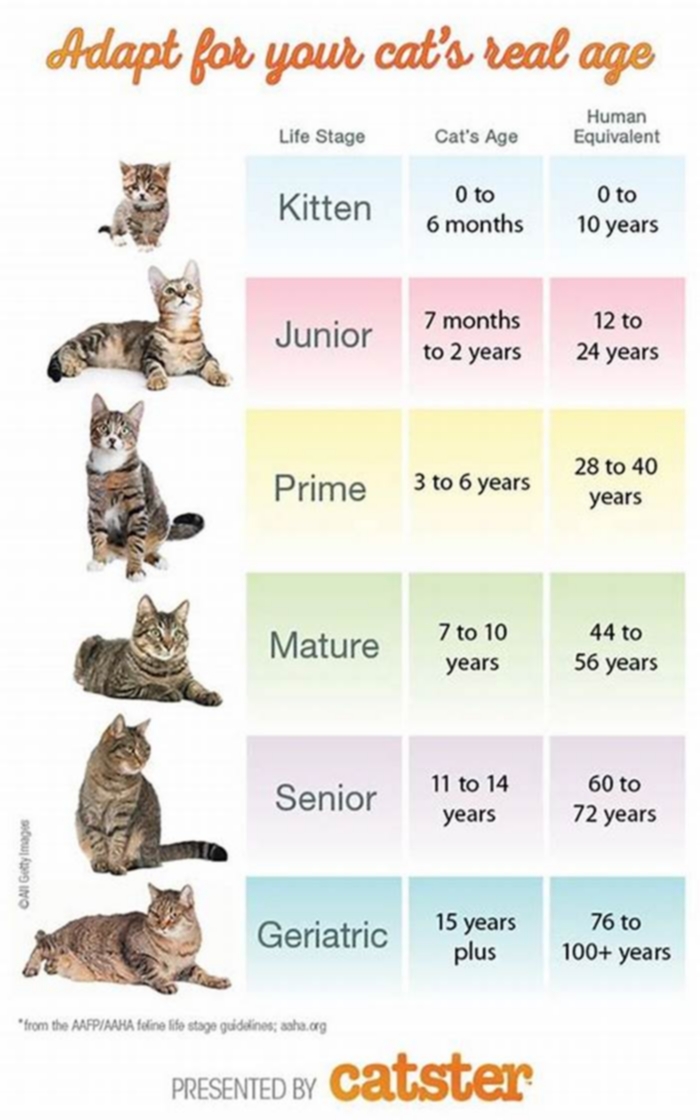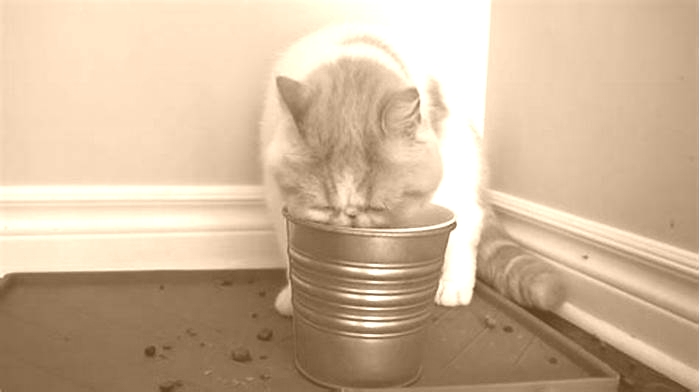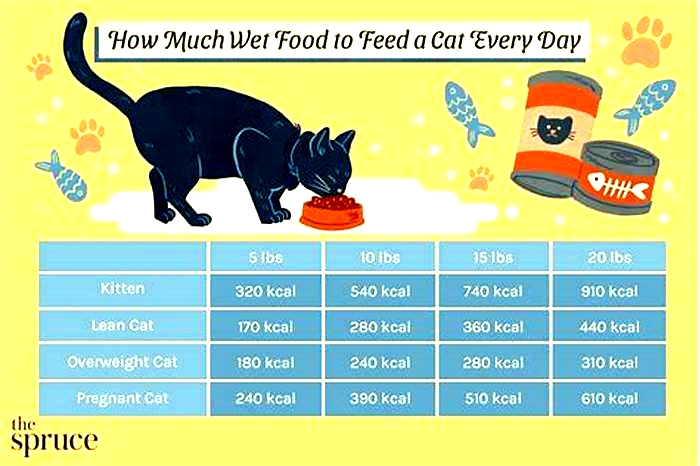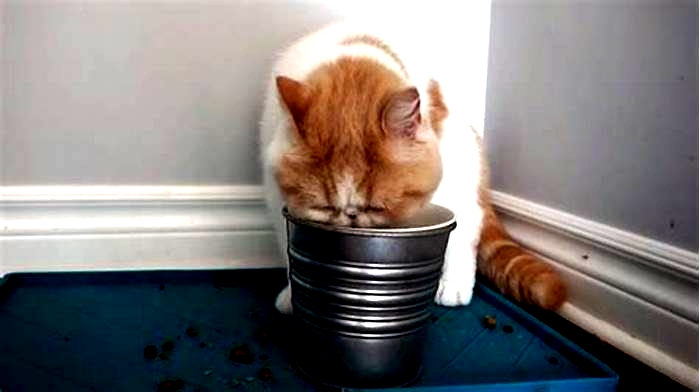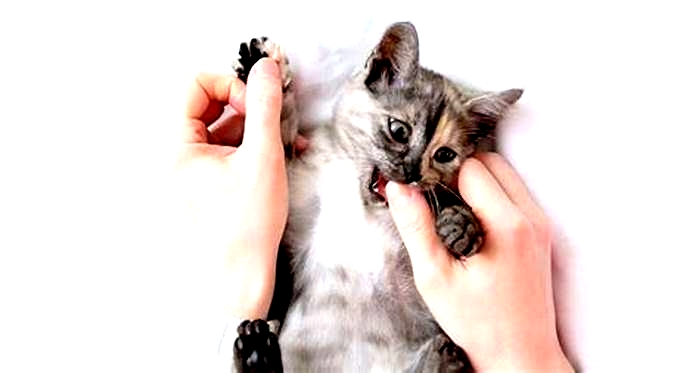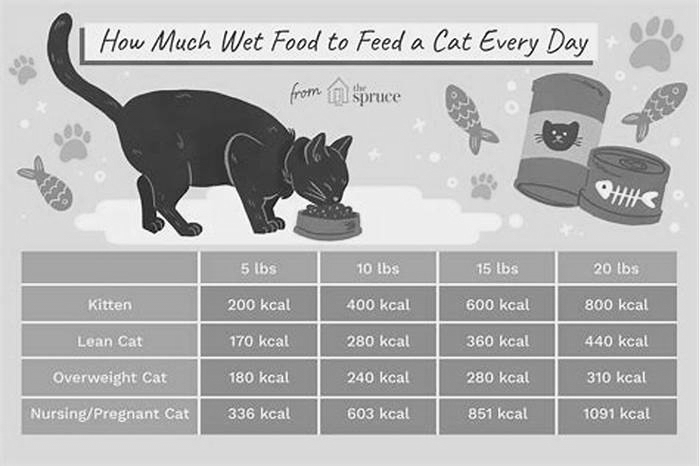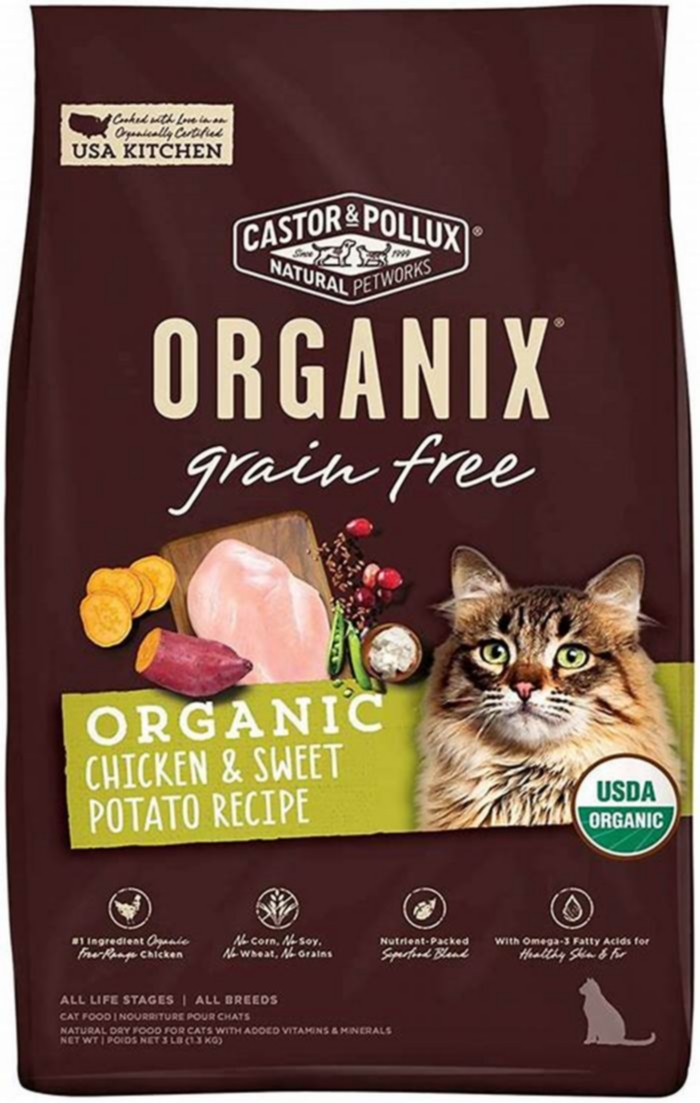How can you tell if a kitten is dehydrated
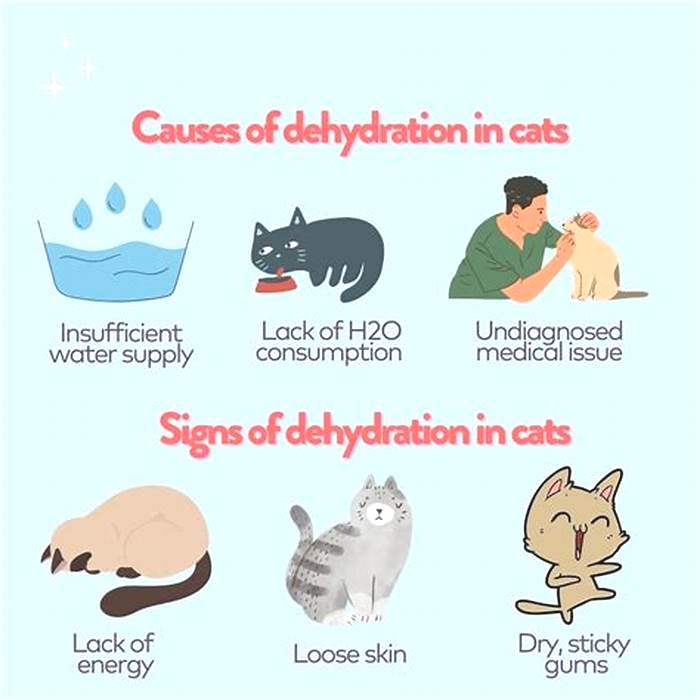
Tips For Saving A Dehydrated Kitten
Did your cat recently give birth to kittens? Congratulations! Kittens are cute clumps of fur, but unfortunately, not all of them will make it out of the first few weeks of life.
Your newborn kittens are at risk of fading due to vulnerabilities in the biological mechanisms regulating body temperature.
The complications of this issue in kittens make them predisposed to low-blood sugar disorders (hypoglycemia), as well as dehydration.
Dehydrated kittens dont last long, and rapid death occurs if the kitten doesnt receive medical attention.
This post gives you tips for saving a dehydrated kitten.
How Much Water Does My Kitten Need Every Day?
Newborn and young kittens are at a higher risk of developing dehydration than adults or adolescent cats.
The kittens body has higher water content, and the body is inefficient at regulating water loss through the skin, lungs, and kidneys.
Typical fluid requirements for small newborn kittens are around 130 to 220 ml/kg every 24-hours, depending on body weight. Adult cats only require 50 to 65 ml/kg every 24-hours.
Dehydration typically occurs in kittens when they dont drink enough milk. However, an overly warm environment may also increase fluid loss in your kitty.
Some kittens experience problems with diarrhea in the first weeks, further exacerbating fluid loss. Kittens fade fast when they enter a dehydrated state. Its almost a lost cause for newborns, but if the kitten is a few weeks or months old, theres a chance you can save it.
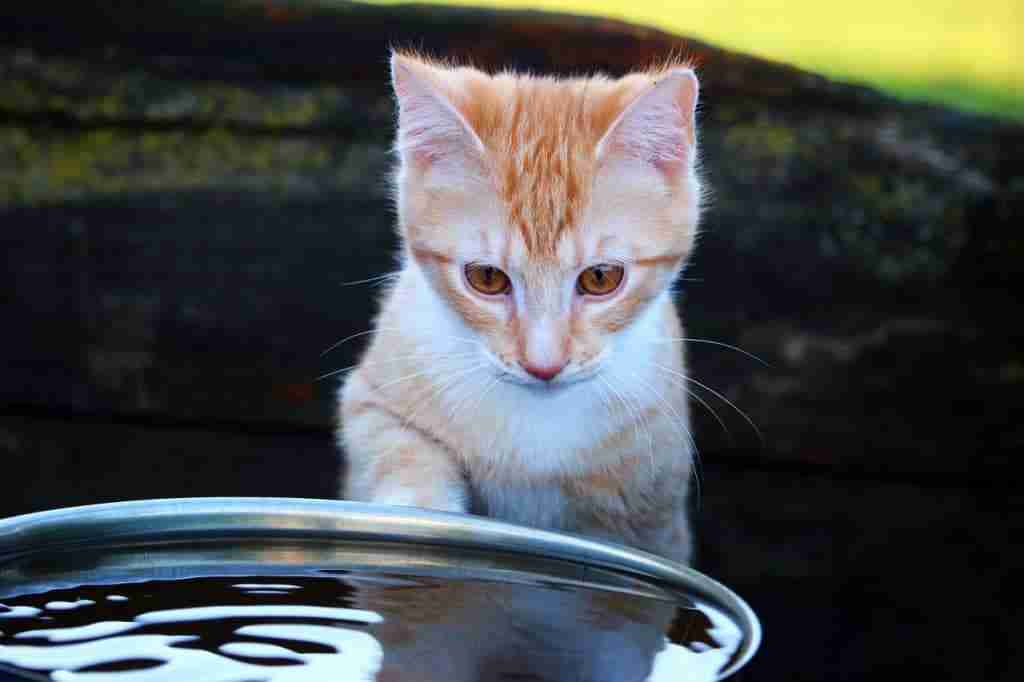
According to veterinary science, the technical point for dehydration occurs when body fluid levels drop by more than 5%.
Fluid loss between 5% to 10% presents a moderate case of dehydration, while losses over 15% are severe, life-threatening cases for your kittens.
Dehydration is a fatal condition for kittens, and owners need to get their animals to a vet immediately for treatment.
How to hydrate a sick kitten? Dont try to treat the dehydration yourself unless you have the right medication, equipment, and veterinary knowledge.
For a kittens body to function optimally, its body composition needs to remain around 60% water, minerals, and electrolytes. Electrolytes like sodium, potassium, and chloride are essential for stabilizing the nervous system.
If the kitten experiences dehydration, it skews the delicate mineral balance. It exacerbates the speed of dehydration and the severity of the kittens condition.
In this process, known as hypohydration, the kittens body starts to pull water from the organs to satisfy the bodys hydration demands.
As a result, the kittens biology experiences a lack of water, producing issues with digestion, circulation, and removing toxins from the bloodstream.
What are the Common Symptoms of Dehydration in Kittens?
Its challenging for owners to identify to early stages of dehydration in their kittens. Symptoms are mild, and they dont present any visible problems. However, as fluid loss accelerates, youll start to notice the signs of dehydration.
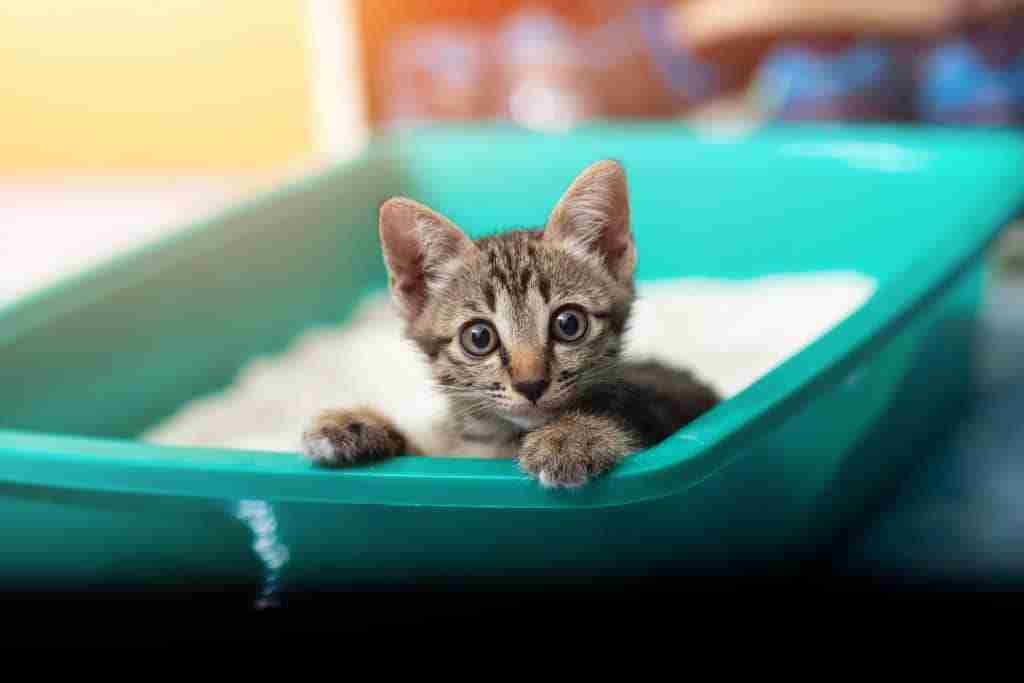
If you notice signs of dehydration, pack your kitty in the carrier, and head to the vet. Dont try to treat dehydration at home.
Here are some of the signs of dehydration in cats.
- Dry tongue and mouth.
- Sunken and unresponsive eyes.
- Lethargy and weak response to your presence.
- Constipation or diarrhea.
- Poor skin elasticity.
- Weakened capillary filling.
- Elevated heart rate.
- Polyuria (frequent urination).
Some of the signs are hard to identify. Kittens like to sleep, so the lethargy might be challenging to spot.
The dry tongue and mouth are obvious signs, as are the sunken eyes. If you notice any of the symptoms, rush to the vet as soon as possible.
What are the Causes of Dehydration in Kittens?
Several factors lead to dehydration in your kitten. As mentioned, kittens have a harder time regulating body fluid levels, and they have a higher risk of dehydration than adolescents or adults.
Dont keep newborn kittens on heating pads or have difficulty regulating body temperature, leading to rapid fluid loss and the onset of dehydration.
Some kittens may also have underlying issues involving kidney infections. Other organ problems with the thyroid or digestive system may also cause dehydration in kittens.
Vomiting or diarrhea can also lead to fluid loss resulting in dehydration. Weaned kittens already drinking and eating might get picky with their water.
In general, cats dont like it when their water bowl is dirty, keep it clean and stocked with fresh water. Cats also prefer cold water to room-temperature fluids.
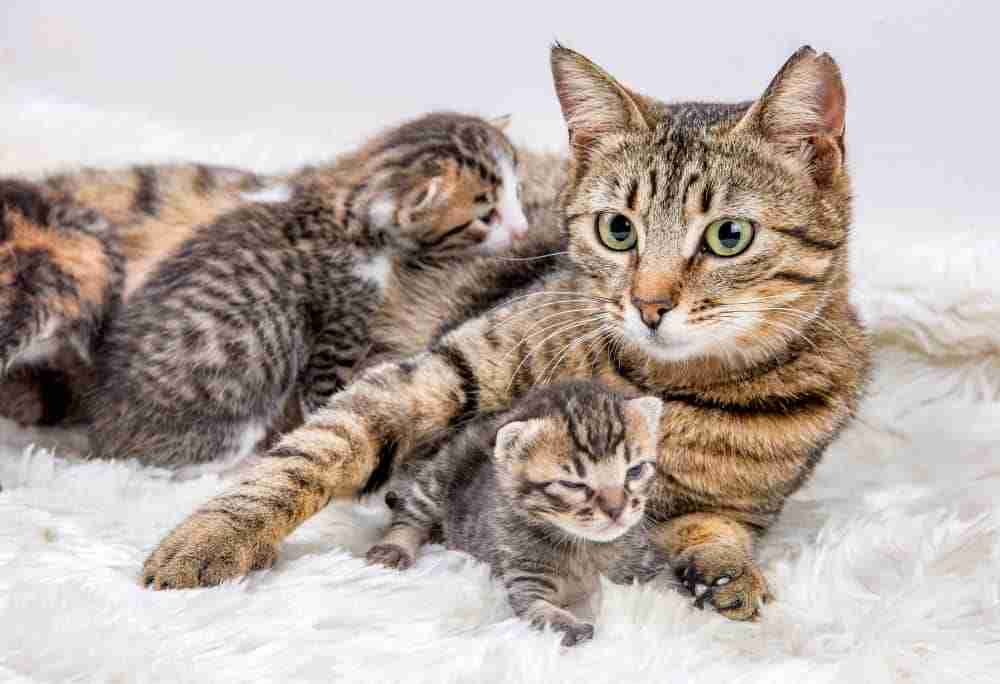
How Does the Vet Diagnose Dehydration in My Kitten?
If you suspect your kitten is in a dehydrated state, you need to immediately get them to the vet.
Trying to feed them ice shavings or administer water through a dropper wont work, and your kittys situation will continue to deteriorate.
If you want to check to see if dehydration is the problem before rushing to the vets office, try the tenting technique.
Tenting or Turgor tests involve pulling on the skin around the scruff of the kittens neck. If the kitten has adequate hydration, the skin flattens to the normal position within a second or so. If the skin stays tented after pulling, then the kitten is dealing with dehydration and requires immediate medical attention.
During the consultation with your vet, the Turgor test will be the first thing the vet does to assess the situation.
Theyll also conduct a thorough physical examination of your kitty and ask you questions about what youre feeding your kitten and its eating and drinking habits, depending on its age.
The vet will also enquire about the onset of symptoms and when you noticed them show up in your furry friend. The purpose of the questioning is to uncover the problem causing dehydration.
The vet needs to resolve the underlying issue so it doesnt experience fluid loss after receiving rapid rehydration treatment.
The vet may also take a blood sample and send it to the lab for analysis. The tests involve looking at the kittens biochemical profile and blood count.
The vet may also order a packed cell volume test, along with tests for total blood proteins to identify the presence of dehydration from the concentration of protein and cells in the kittens blood.
A urinalysis is also useful in determining electrolyte levels to assess the kittens kidney function. The vet will also look at urine concentration, which occurs in many cases of kitten dehydration.
How Do You Treat a Dehydrated Kitten?
If you suspect your kitten is dealing with the onset of dehydration get them to a vet ASAP. Please dont waste time trying to get them to respond to home remedies like shaved ice or dropper feeding.
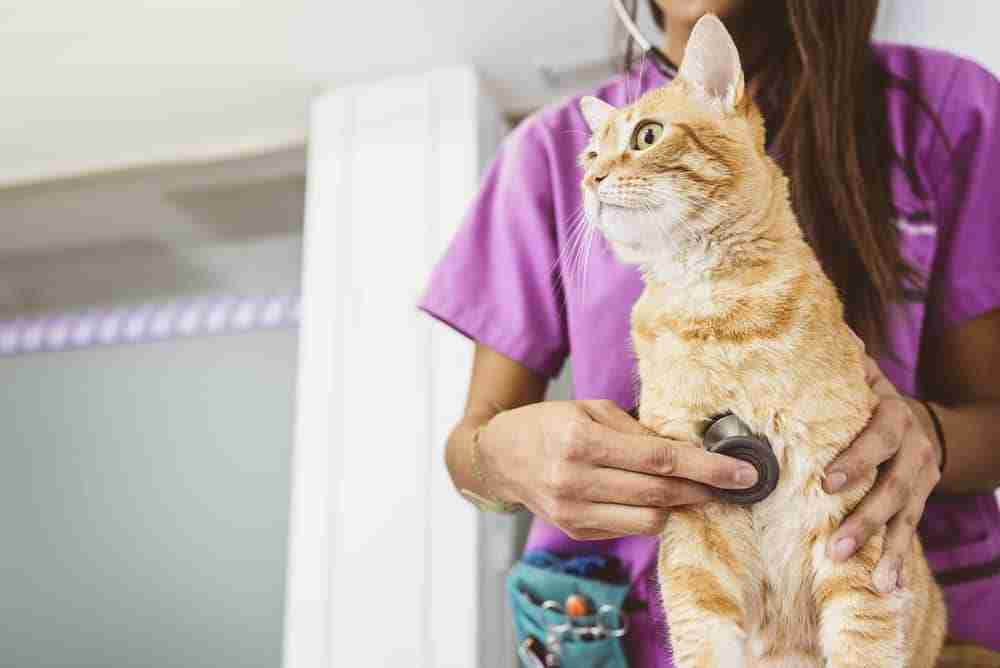
By the time you notice the dehydration, chances are your kitten is already in a bad state. Failing to get them the medical attention they need results in death.
After visiting your vet and receiving the diagnosis, the vet starts your kitten on a rapid rehydration program to help them reverse the effects of dehydration.
Each dehydration case is unique, and the survival probability of your kitten depends on its condition and the extent of the dehydration and internal damage.
If the kitten doesnt receive fluids fast enough, it leads to severe, life-threatening complications for the animal.
Administration of Fluids
After ensuring no underlying health conditions are causing the dehydration in the kitten, the vet launches the rapid rehydration program.
With this method, the vet uses intravenous rehydration methods to restore the kittens body fluid levels and mineral balance.
Most vets use a hydration solution known as Ringers Lactate. This IV fluid contains the right balance of water and minerals to rehydrate your kitten rapidly.
Typically, the vet attaches an IV line in the skin between the shoulder blades of the kitten. The IV line feeds the solution subcutaneously below the skin. Most kittens are too small for intravenous rehydration.
The vet may send you home with the kitten after showing you how to monitor the process. The vet may also show you how to change the IV bag and how to set it up so you can do it at home.
Before administering the Ringers Lactate to your kitten, make sure you heat the fluid to a warmer temperature.
Take it out of the fridge and leave it in the sink with some warm water for a few minutes.
Medications
If your kitten is vomiting excessively, it can lead to dehydration, especially if it doesnt replace the fluids.
If the vet feels the vomiting is a problem, theyll administer antiemetics drugs to stop nausea and vomiting in your kitten. These medications inhibit the receptor response in the brain that triggers vomiting.
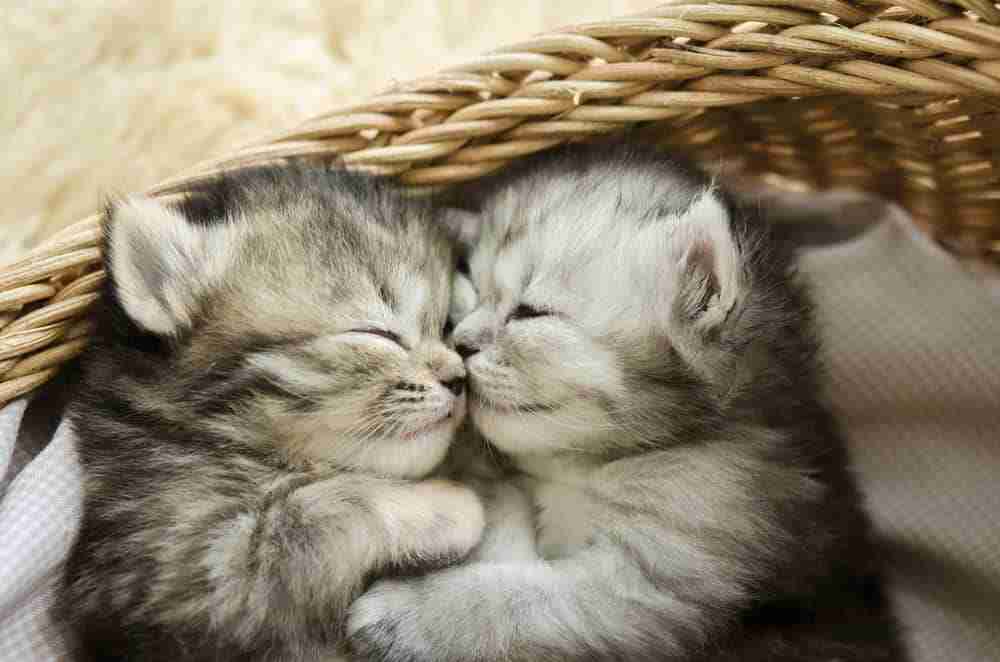
Recovery of Dehydration in Kittens
After the vet discharges your kitten from the hospital, youll need to monitor it for several days to ensure it recovers. Not all kittens will recover, but theres a chance if you get to the vet and start treatment early.
Ensure you keep water readily available for your kitten, and keep the bowl clean. Change the water at least once a day, and keep the water bowl out of the sun kittens wont drink warm water.
Make sure you keep your kittens out of the sun to prevent them from overheating and avoid the use of heat pads or blankets in your kittens bed.
If the vet recommends you keep the IV rehydration going, do it for as long as necessary, and return to the vet if the kittens health deteriorates.
Tips for Saving a Dehydrated Kitten Key Takeaways
- Kittens have issues with regulating body temperature, leading to fluid loss and dehydration.
- Identifying the signs of dehydration early on can save your kittens life.
- Use the Turgor test to check if your kitten is dehydrated.
- Dont try to deal with dehydration at home get to the vet ASAP.
- Dehydration in kittens can occur for several reasons.
- Fluid loss and mineral balance are the most common causes of dehydration in kittens.
- Avoid using heating pads or blankets in your kittens bed.
- The vet treats dehydration after examining and diagnosing your kitten.
- Vets treat dehydration using IV fluids administered through a drip in the shoulder blades.
- You may have to continue this treatment at home under the advice and direction of your vet.
- Most kittens recover from dehydration, provided they get medical attention in time.
- Keep your eye on your kittens for relapse during the first few days after returning from the vet
Dehydration in Cats: How Can You Tell If a Cat Is Dehydrated?
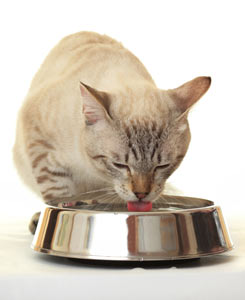
Dehydration means that a cat has either used or lost more fluids than her body needs to perform basic metabolic functions, without replacing them through drinking. Dehydration also results in electrolyte loss. This decrease in fluids and electrolytes negatively affects circulation, digestion, and toxin removal from the body. If it is severe enough, it can result in organ failure and death.
Ways a Cat May Lose Too Many Fluids
- By overheating in hot weather
- Through vomiting
- By having excessive diarrhea
- Through a metabolic disorder such as kidney disease, diabetes, or hyperthyroidism.
- Because of a fever
- Through blood loss
Reasons a Cat May Not Take in Enough Fluid
- Cats in the wild are carnivores. They get most of their moisture from the prey that they eat, and as a result they have a low thirst drive.
- Because cats do not have much of an urge to drink water, it is very easy for them to become dehydrated quickly, especially if they are fed dry food.
- Cats that are ill may not drink enough water because they feel nauseous or too lethargic to move around.
- Cats that become lost or accidentally locked in an area without water may become dehydrated.
- Cats that are left outdoors without access to fresh water may not be able to find an adequate source.
- Cats may not like the source of water that is available to them. Cats are very sensitive to smells and may not like the smell of the chemicals in tap water. Many cats prefer drinking running water to standing water, and some have very definite preferences for the type of bowl that their water is presented to them in.
Why Is It Important to Know If Your Cat Is Dehydrated?
Cats that are dehydrated begin to feel lethargic. Then they don't want to eat and drink or move around, so they become more dehydrated. In this way, dehydration can start a vicious cycle, and if it is untreated, it can lead to organ failure.
When a cat's dehydration is caused by an underlying illness, it is important to know that your cat is sick so that appropriate treatment can be started.
Treatment of Dehydration in Cats
The cornerstone of the treatment of dehydration in cats is fluid replacement. This can be done orally if the pet is not vomiting and has no underlying disease process complicating things. If the cat will not take fluid in orally or can't keep it down because of vomiting, fluids may need to be given another way. The two most common parenteral (delivered in a way other than through the GI tract) ways of giving fluids are subcutaneously (deposited under the skin) and intravenously (injected directly into a vein).
The second goal of treatment should be directed at resolving the underlying cause of the dehydration. If this was overheating or increased exercise, the treatment might simply be to ensure that there is clean, fresh water available for your cat at all times. If a bout of vomiting caused the dehydration, your veterinarian may treat your cat with anti-emetics or other medications.
If a chronic condition such as kidney disease is causing your cat to consistently be at risk for dehydration, you may need to replace fluids on a regular basis. Subcutaneous fluids may need to be given routinely. You can learn to do this at home.
How to Tell If Your Cat Is Dehydrated
There are some basic ways to tell at home if your cat might be dehydrated:
- Look at her eyes: If your cat's eyes are sunken into the sockets and appear dull instead of shiny, it's likely that she is dehydrated.
- Do a skin tent test: Proper hydration helps a cat's skin remain elastic and supple. A dehydrated cat's skin may not rebound as quickly as that of a well-hydrated cat when you pull it up. A good place to check this is between the shoulder blades, where there is a good bit of extra skin. Using your thumb and first two fingers, pull some skin up just a bit to make a tent shape, then let go and watch how fast it rebounds to its normal position. It should do so within one second. A dehydrated cat's skin will not rebound as quickly as a well-hydrated cat's. An extremely dehydrated cat's skin may not rebound at all. This test can be tricky to interpret and takes some practice getting to know what normal is. Do not rely on it alone to determine if your cat is dehydrated...if your cat shows signs of illness, consult your veterinarian.
Check your cat's gums:
- When a cat is well-hydrated, her gums are pink and moist. If the gums appear dry and feel sticky when you touch them, your cat may be dehydrated.
- When you push lightly on the gum with your finger, then remove it, a blanched area will appear on the gum. The blanched area should disappear, returning to pink, in one to two seconds in a well-hydrated cat. If it takes longer, your cat may be dehydrated.
- Cats that are ill may be less compliant about handling than usual. Be sure to use care when attempting to look in your cat's mouth, and stop immediately if she acts upset.
- Consider the saliva: A well-hydrated cat's saliva is thin and mostly unnoticeable. If you see thick, more ropey saliva, it may indicate dehydration.
- Check your cat's litterbox: A dehydrated cat may become constipated. This may mean that you don't see stool in the litterbox, you see several small, very hard pieces of stool, or you see small pieces of stool outside of the litterbox.
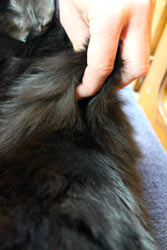
These signs of dehydration are more non-specific and can occur during a variety of illnesses:
- Lethargy
- Loss of appetite
- Increased heart rate
Drinkwell Pagoda ceramic fountains are not only beautiful to the eye, they are lovely to listen to.
Most importantly, they encourage cats to drink more water, which is good for their health.
Order now!
Preventing Dehydration in Cats
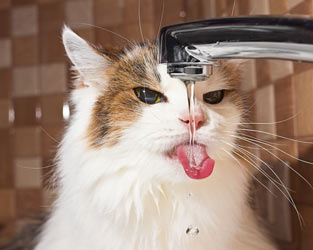
- Cats can be finicky about how they obtain their water, so it helps if you can observe your cat during times of normal hydration to learn her preferences. Some cats only like glass bowls, some like running water rather than standing water, some like tap water, and others prefer bottled.
- Make sure that you clean your cat's water bowl every day to discourage bacteria from growing on its surface.
- Some cats prefer shallow but large bowls so their whiskers aren't disturbed while they're drinking.
- For cats that love running water, you may consider a Drinkwell Pet Fountain. This can minimize the need for you to run a faucet constantly and have your cat sitting in your sink all the time.
- If possible, and with your veterinarian's approval, feed your cat canned foods. They contain up to 80% moisture and can help to compensate for your cat's low thirst drive.
- If your cat has had a bout of vomiting, don't offer her a large amount of water right away. She may drink too much at once and trigger more vomiting, leading to greater dehydration than she would have experienced otherwise. Limit her water and food to small amounts every hour or two for the rest of the day. If your cat vomits more than once or twice, contact your veterinarian right away.
- If your cat goes outside, make sure she has access to a cool place in hot weather and shelter in cold weather, with plenty of clean, fresh water at all times.
- Taking your cat to the veterinarian routinely for exams and any recommended testing such as blood work can help you catch and begin treating any underlying problems such as diabetes or kidney disease early, before they result in dehydration.
Dehydration in cats can rapidly lead to greater illness. Understanding cats' low thirst drive, knowing how to identify the signs of dehydration, and calling the veterinarian quickly if your cat is ill or seems dehydrated will go a long way toward helping your cat feel better much more quickly.
You May Also Like These Articles:
Should You Get Your Cat a Water Fountain?
How Do Cats Sweat?
Giving Your Cat Clean and Fresh Water
Subcutaneous Fluid Therapy: Giving Your Cat Fluids at Home
Kidney Disease in Cats
Disclaimer: This website is not intended to replace professional consultation, diagnosis, or treatment by a licensed veterinarian. If you require any veterinary related advice, contact your veterinarian promptly. Information at CatHealth.com is exclusively of a general reference nature. Do not disregard veterinary advice or delay treatment as a result of accessing information at this site. Just Answer is an external service not affiliated with CatHealth.com.

